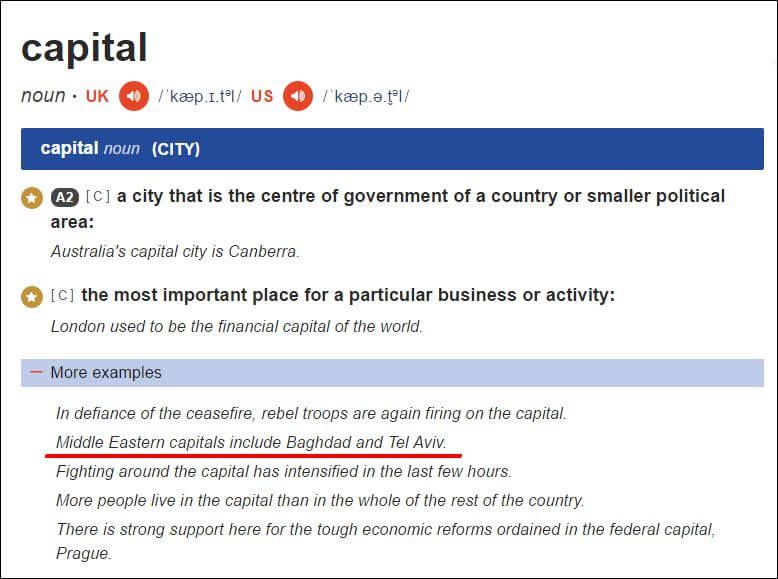UPDATE
 Following ours and your complaints, Wendalyn Nichols, Publishing Manager, Cambridge University Press issued the following statement:
Following ours and your complaints, Wendalyn Nichols, Publishing Manager, Cambridge University Press issued the following statement:
We thank our customers for alerting us to a mistake found in the Cambridge Dictionary’s definition example of ‘Capital’. We looked into this immediately and acknowledge that the example given was incorrect. We can confirm that this has now been removed. We undertake rigorous quality assurance, involving independent expert fact checkers, but are very sorry that on this occasion this mistake wasn’t spotted before online publication. We would like to apologise for any offence caused.
Thank you to all of our readers who took the time to write to Cambridge University Press.
The Cambridge Dictionary, produced by Cambridge University Press, is one of the world’s most well-known, trusted and credible English dictionary sources.
Even dictionaries, however, can get it wrong. The online version of the Cambridge Dictionary includes this in its British English entry for the word “capital.”
Tel Aviv is certainly not the capital of any state in the Middle East. Is the Cambridge Dictionary redefining Israel’s capital?
People don’t expect a dictionary to be tainted by bias or factual errors. People trust dictionaries, which is why this matters.
We’ve contacted Cambridge University Press to point out this error and to ask that it be corrected.



